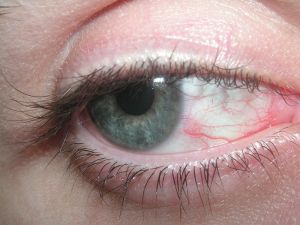
As a kid I would see adults numb out. (I didn’t know it was that at the time.) They’d get obsessed with hobbies, drink too much, channel surf late into the night, veg-out with a bag of potato chips, flitter about with shopping, or keep their nose in a book. Smart phones hadn’t been invented but going numb abounded!
I sensed I wasn’t like them because I was always moving on to the next adventure. I was sort of powerless as a kid, but I wasn’t stuck. It wasn’t just their actions, it was their faces gave away that something had shut off.
I get it now.
I get that we grow to numb out because it’s a way to reduce anxiety. Anxiety doesn’t lessen with age. In fact, more disappointments have piled up and more is at stake after a few decades of life. Disappointment, pain, fear, and frustration all drive us to numb out. I can’t think of anyone who doesn’t do it in some variety.
The difference is that some people can block and judo chop numbness and start moving again, and others get stuck in a pattern they go back to it–like food, or stay stuck in it–like a bed. That makes you fat and sleepy. Undead. A Zombie.
I have to fight off a tendency to go numb and zombie out, too. Life is painful, I get it. But, I’ve realized it’s worth the fight. (It’s an actual life or death struggle.)
Blasting numbness takes skills.
But how can you tell if you’re numb or just in a slump?
Here are 3 Ways:
1. You just can’t “get to it”
Whether it’s that you’re -super busy-, or that you feel the conditions are never quite right to get started, there is a special sort of “stuckness” that signals Numb territory. You meant to. You want to. You should. But, there’s lag and drag.
2. You’re distracted by design
You try to stay busy or occupied (whether you realize it or not). Maybe you check your emails a lot, or play apps or video games, surf the net for reading material or naked people, or scrapbook like mad. Maybe you text a lot, or you have to “get your run on” (frantic exercise), maybe you troll blogs, or do Facebook on your Smart Phone when you find a gap in your day. You want a break! It makes sense.
Or maybe, it’s more subtle. Maybe the kids have crazy schedules of activities you must attend to. Whatever it is, you have to admit that you’re trying to appease to your restlessness. You’re trying to stay moving but really you’re going nowhere. In the end, you only want more “soothing” or movement because you’re still in the same place.
3. You’re less connected
Have you really opened up to a friend lately, face-to-face? Can people get close to you or really know you? Have you avoided getting close to other people because they seem like a pain in the butt? This is because there is something painful about it. You want to avoid that stuff and you want to stay numbed out. People are a great source of anxiety for all kinds of reasons, but disconnection means you’ll stay numb. It’s time to be fearless.
What’s really so bad about going numb or staying numb?
Tons, but I’ll limit it to 3.
• You. Stay. Stuck. (Hardly anything is more frustrating. It’s like a jail. But, you made this jail. It’s time to get out.)
• You stop growing as a person. (Remember the cranky neighbor or the jerk boss? That is or will be you! Don’t be that guy. Remember, the mean librarian or pissed off gym teacher. Don’t let it come to that.)
• Deadness. Zombies look cool in the movies, but…hello…they. are. dead. (and they eat the brains of living people. gross. Wow. How true is that, anyway?)
If you are numb, you are deadened. You can’t feel the good stuff either, like love, acceptance, belonging, and joy. (This stinks because it’s hardly living when you’re numb to the good stuff!) You can’t fine tune numbness. It’s a categorical deadening.
I can’t stress this enough: Don’t be a Zombie.
In the next post, I’ll share best practices for judo chopping numbness in the neck…and getting on with your best life. (Click the content link in the right sidebar to get that post zipped right to you.)
Now you’ll like this! Check out what a good judo chop can do.



